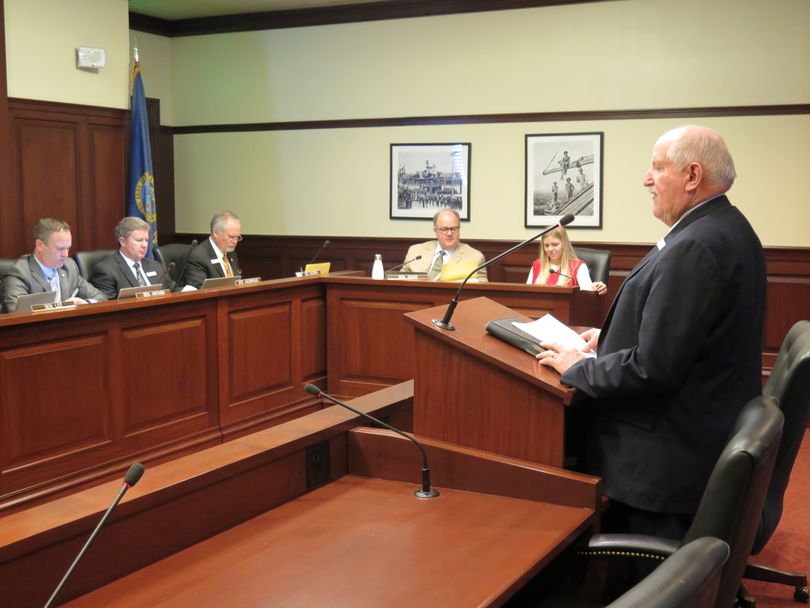Two major highway funding bills introduced in Senate committee

If you were listening online, you might have missed it, but the Senate Judiciary Committee has just introduced two versions of what could be this year’s “going-home bill” – two transportation funding packages, both calling for hundreds of millions of dollars in new GARVEE bonding to pay for major highway upgrades in Idaho.
One of the bills includes just the GARVEE bonding, to add $300 million more in bonding. The other couples that move with a series of other major provisions. Senate Transportation Chairman Bert Brackett, R-Rogerson, who proposed both bills, said after he left the committee room, “We owe it to the people of Idaho to address the highway situation, and this is an honest effort to do that.”
Before Brackett could even begin to tell the committee what the bills would do, Senate Majority Leader Bart Davis, R-Idaho Falls, moved to introduce both bills, and Sen. Kelly Anthon, R-Burley, seconded the motion. It passed on a voice vote, with just one “no” vote from Sen. Marv Hagedorn, R-Meridian.
Talking with reporters afterward, Brackett said, “In the event we deadlock on the larger bill, the fallback is the small one, and that’s a must-have. That’s in consideration of the folks in Canyon County and everyone else who drives the interstate.”
Here are the changes included in the larger bill, in addition to $300 million in new GARVEE bonding, which borrows against future federal highway allocations to fund big road projects, and which can only be applied to the highway corridors already identified under Idaho's current GARVEE bonding program:
- An additional $200 million in bonds to be issued by the Idaho Housing Finance Association and paid off by sales taxes, and split 60-40 for state and local transportation projects. That brings the bill up to a total of $500 million in bonding;
- A five-year extension of the current “surplus eliminator,” under which unanticipated state general fund revenues each year get split 50-50 between the state’s rainy day fund and road projects, but with 60 percent going to state road projects and 40 percent to local ones;
- A sales tax exemption for road materials used in public road projects, which backers say would save $10 million to $12 million from the cost of road projects;
- Elimination of the $17 million a year that now flows from state highway funds to the Idaho State Police, with ISP getting a dedicated share of 1 percent of state sales tax collections instead; and a one percentage point increase to 12.5 percent in the portion of sales tax distributions that go to the Revenue Sharing Account, to keep local governments from suffering from the ISP’s new dedicated share; and
- An independent evaluation, by the Legislature’s Office of Performance Evaluations, of the LHTAC, the Local Highway Technical Assistance Council.
Brackett said the Senate Transportation Committee’s next meeting is Tuesday, and he’ll likely have the two bills on the agenda for full hearings.
Senate Judiciary Chair Patti Anne Lodge, R-Huston, told her committee, “These RS’s have been approved by leadership, and I accepted them to be brought to you today for a print hearing.”
After Davis made his motion and Anthon seconded it, cutting off any further discussion of the new proposals, Lodge said, “Sen. Davis, your light’s still on,” referring to the light on his microphone that indicates he’d like to speak.
With a clunk, Davis turned it off.
Brackett told Lodge and the committee he’d like to make a correction to the bill’s Statement of Purpose, as a sentence about the LHTAC review was inadvertently left off.
“This will be sent back to your committee, and you can make the changes in your committee,” Lodge said.
With that, the committee voted to introduce the bills. Hagedorn said later that he voted “no” because he wanted to vote on introducing the two bills one at a time, rather than together in a single motion.
